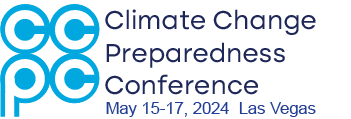
A leader in Sustainability defining strategy, product viability, brand development, product management, channel sales, analyst/media relations, B2B technology and communications sales, GSA contracts, government sales delivering record revenues and market development. Critical thinking Background encompasses startup through Fortune Global 100 organizations. P&L management into the millions; dynamic coach and motivator; author of several energy industry articles and the book Some Do… A Guide to Life in Sales.
Revenue Generator who Creates windfall strategies to optimize territory and channel development. Talent Developer who Takes training to the next level, building & inspiring loyalty in sales professionals and building an extensive network of direct, indirect, on-demand workforce. Experienced is Emerging industries like EVSE, Renewable/Sustainable products; Electronic Vehicle Charging Stations showing owners how to create an additional revenue stream. As a business leader, I advise start-ups on developing an infrastructure to support marketing brand differentiation. A proven leader in defining strategy, product viability, brand development, SEO optimization, Event design & production, product development life cycle, product management, channel sales, analyst/media relations, digital marketing/ social media, event planning, Trade show & travel planning, public speaking, public relations, B2B technology and communications sales, CRM, Salesforce pardot delivering record revenues and market development. Background encompasses startup through Fortune Global 100 organizations. P&L management into the millions; dynamic coach and motivator; author of several energy industry articles and the book Some Do… A Guide to Life in Sales.
Accomplished entrepreneur with a unique skill set and proven record of achievement In sales and marketing.
Career Highlights
- Frequent speaker at business events on “How to drive more ROI,” in facilities management & technology
- Developed & Planed Sustainability efforts to the city of Yonkers.
- Achieved 15% revenue growth among unproductive resellers by launching a “New Beginnings” incentive
- Installed a 90+ EV Charging Station program in the City of Yonkers, NY.
SESSIONS
1:30 PM - 2:00 PM Fri, May 19, 2023 Salon C
Transforming Municipal Buildings into Smart Climate Buildings
Transforming municipal buildings into smart climate buildings involves integrating various technologies and strategies to optimize energy efficiency, reduce carbon emissions, and enhance sustainability. Here are some steps to make municipal buildings smart climate buildings:Energy Audit and Benchmarking: Conduct an energy audit of the building to identify areas of energy waste and inefficiency. Benchmark the building's energy performance against industry standards to establish a baseline for improvement.
Building Automation Systems (BAS): Install a BAS to control and monitor building systems such as lighting, HVAC (heating, ventilation, and air conditioning), and water management. BAS can optimize energy usage by automatically adjusting settings based on occupancy, time of day, and weather conditions.
Renewable Energy Sources: Install renewable energy systems such as solar panels or wind turbines to generate clean and renewable energy on-site. This can offset the building's energy consumption and reduce its carbon footprint.
Efficient Lighting: Upgrade to LED lighting, which is energy-efficient and has a longer lifespan compared to traditional lighting. Use occupancy sensors or daylight harvesting to automatically control lighting based on occupancy and natural light availability.
HVAC Optimization: Implement smart HVAC systems that use sensors and data analytics to optimize heating and cooling operations. This can result in significant energy savings by adjusting temperature settings based on occupancy and outdoor weather conditions.
Water Conservation: Implement water-saving measures such as low-flow fixtures, smart irrigation systems, and rainwater harvesting. This can reduce water consumption and minimize the building's impact on local water resources.
Building Envelope Upgrades: Improve the building's envelope by adding insulation, sealing air leaks, and upgrading windows to reduce energy loss and enhance thermal comfort.
Data Analytics and Monitoring: Utilize data analytics and monitoring tools to continuously track and analyze the building's energy performance, water usage, and other sustainability metrics. This can provide insights for further optimization and continuous improvement.
Education and Engagement: Educate building occupants and stakeholders on the importance of energy conservation, sustainability, and climate action. Encourage behavior changes and engagement in energy-saving initiatives.
Collaborate with Partners: Collaborate with local utilities, energy service companies, and other stakeholders to leverage available incentives, grants, and partnerships for funding and technical support to implement smart climate solutions.
By integrating these technologies and strategies, municipal buildings can be transformed into smart climate buildings that are energy-efficient, environmentally responsible, and contribute to mitigating climate change.

